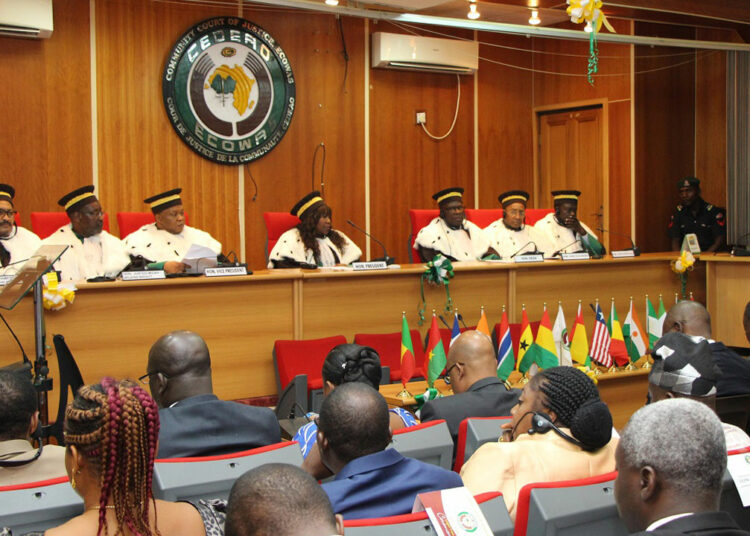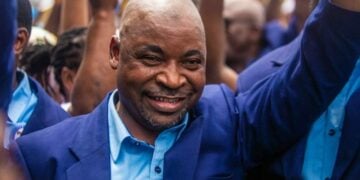The Community Court of Justice of the Economic Community of West African States (ECOWAS) has declared the case of alleged human rights violations brought by two Non-Governmental Organisations (NGOs) inadmissible, citing their lack of capacity to initiate a public interest lawsuit.
In a judgment delivered by Hon Justice Sengu Mohamed Koroma, on Friday, February 14, the Court equally dismissed all claims made by the Applicants—the Incorporated Trustees of Prince and Princess Charles Offokaja Foundation, Nigeria, and Prince and Princess Charles Offokaja Foundation, Switzerland—against the Federal Republic of Nigeria.
According to a statement issued on Friday by the Communications Division of the Court, the case, filed under suit number ECW/CCJ/APP25/23, was brought by the NGOs, represented by their agent Charles Offokaja. The Applicants alleged that Nigeria’s failure to construct a dam in Adamawa State, designed to mitigate the effects of overflow from the Lagdo Dam in neighboring Cameroon, violated the fundamental rights of Nigerian citizens.
They argued that the delayed construction of the dam had resulted in flooding, contributing to widespread damage, loss of life, displacement, and the disruption of economic and educational activities across 14 Nigerian states.
The NGOs further contended that the dam project would have alleviated the flooding by enabling proper management of water, which could have been used for irrigation and electricity generation. They also highlighted the devastating impacts of the Lagdo Dam releases in 2012 and 2022, including the destruction of property, health and environmental challenges, the statement said.
On their part, the Nigerian government denied the claims, asserting that the pre-feasibility study conducted in 1982 was part of a broader initiative focused on the development of the Benue Basin’s water resources.
The government stated that the Memorandum of Understanding (MoU) between Nigeria and Cameroon was centered on enhancing cooperation in managing shared water resources. The Nigerian government also emphasised the steps it had taken to mitigate flooding, including building additional dams and securing a 2024 Senate resolution to facilitate the dredging of the Benue and Niger Rivers.
It argued that while the Court had jurisdiction to hear human rights cases, the Applicants failed to demonstrate the specific victims affected by the flooding or to show any direct violations of rights.
In its judgment, the Court affirmed that it had jurisdiction to hear cases related to human rights violations. However, it concluded that the Second Applicant, a Swiss-registered NGO, lacked the legal capacity to bring a case before the Court.
Regarding the First Applicant, a Nigerian-registered NGO, the Court acknowledged its claim to represent public interest but found that the case failed to meet the required criteria for public interest litigation. The Court stated that while the Applicants referenced a broad class of victims—the Nigerian people—it was unable to identify or envision the specific victims whose rights were allegedly violated.
“The Court recalls that the requirement is that the class of victims in a public interest litigation even when indeterminable should be capable of being envisaged by the Court,” Justice Koroma said.
Consequently, the Court ruled that the First Applicant also lacked the capacity to pursue the case on behalf of the public interest and dismissed the lawsuit in its entirety.
The judgment was delivered by a panel consisting of Honourable Justices Sengu Mohamed Koroma (Presiding & Judge Rapporteur), Dupe Atoki (Member), and Edward Amoako Asante (Member).





